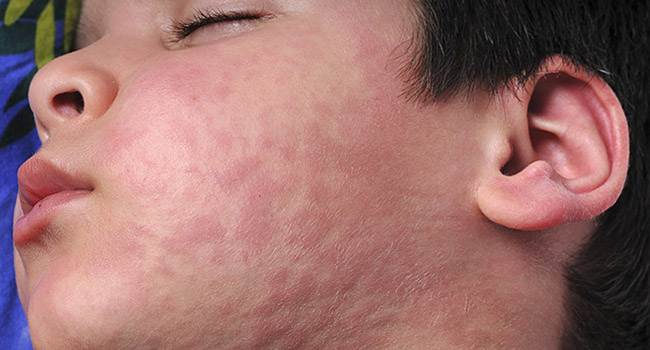
Tonga's Ministry of Health today issued a Measles Alert after 13 members of a Tongan school rugby team developed measles after returning from New Zealand this month. Measles is a highly infectious disease and the public is urged to be vigilant for signs and symptoms and to get immunized, especially if they are traveling overseas.
The high school rugby group were playing rugby in New Zealand in September. There were 60 boys and eight officials in the group. One of the boys became unwell, while in New Zealand and was laboratory confirmed as having measles.
Since their return to Tonga on 1 October, 13 other members of the group developed symptoms of measles. Six of those cases had been confirmed by a laboratory test.
Another person who was in contact of one of the players was a suspected case, bringing the total number to 15 cases.
None of the cases are seriously ill.
The Ministry reported that it had taken rapid steps to prevent further spread of the virus, including isolating the current cases at home, vaccinating contacts of the cases and quarantining the remaining squad members, staff and other contacts.
Ministry of Health CEO, Dr Siale ‘Akau’ola said that parents of players have been contacted and provided with information about measles and the boys were instructed to remain at home until they were sure that they would not develop measles.
“The Ministry is confident that steps have been taken to contain the spread of the virus. However, measles is a highly infectious disease and it is possible that further cases may occur.”
Confirmed cases
The touring party included players from a number of schools in Tongatapu and three outer islands.
Dr 'Akau'ola urged parents to ensure that children are vaccinated according to the recommended immunization schedule. “It is vital that we maintain our high vaccination rate in our ongoing fight against infectious disease.”
Children who have been fully immunized against measles normally have more than 95% protection against the disease, he said.
Travel Advice
New Zealand has a major outbreak of measles with more than 1,800 cases since the beginning of the year.
People travelling to New Zealand and other countries experiencing measles outbreaks are strongly recommended to check their immunization status.
If individuals are unimmunized or unsure of their immunization status, they should plan to be fully vaccinated two-weeks before depart to ensure they are protected.
However, some people should not be vaccinated using the current measles vaccine. This includes infants under six months, pregnant women, people with compromised immune systems and those with a history of allergic reaction to the vaccine. If people are concerned about their vaccination status, they should contact their local health provider to discuss options.
Serious disease
The Health Ministry also advised the public, that measles is caused by a highly infectious virus that spreads easily from person to person through the air, via breathing, coughing and sneezing.
Pregnant women, immuno-compromised people and infants are most at risk of developing serious complications of the disease.
A person experiences initial symptoms 7-18 days (usually about 10 days) after they are first exposed to the virus.
Initial symptoms include, high fever, runny nose, cough, red and watery eyes and small white spots on the inside of the cheeks.
Followed 3-5 days later by a raised, red rash that starts behind the ears, face and upper neck and spreads over the body. It is not itchy.
Not all symptoms may be present in all cases. If anyone suspects they may have measles, they should immediately call the Ministry of Health Communicable Disease Unit who will provide guidance on what they should do.
“Avoid public places and public transport to help stop the spread of the virus.”
For enquiries on measles vaccination contact:
Ministry of Health Contacts, Communicable Disease Unit
- Dr Joseph Takai, Phone: 8880495 or 7709537
- Dr Louise Fonua, Phone: 7779822
Reproductive Health
- Sister Afu Tei, Phone: 7714623
- Staff Nurse Limisesi Kaivelata, Phone: 7740505



